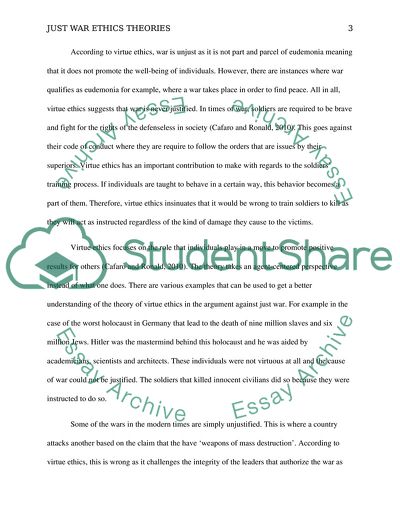Cite this document
(Just War Ethics Theories Essay Example | Topics and Well Written Essays - 2000 words, n.d.)
Just War Ethics Theories Essay Example | Topics and Well Written Essays - 2000 words. https://studentshare.org/philosophy/1834693-just-war-what-are-some-circumstances-that-would-make-a-war-just-or-unjust
Just War Ethics Theories Essay Example | Topics and Well Written Essays - 2000 words. https://studentshare.org/philosophy/1834693-just-war-what-are-some-circumstances-that-would-make-a-war-just-or-unjust
(Just War Ethics Theories Essay Example | Topics and Well Written Essays - 2000 Words)
Just War Ethics Theories Essay Example | Topics and Well Written Essays - 2000 Words. https://studentshare.org/philosophy/1834693-just-war-what-are-some-circumstances-that-would-make-a-war-just-or-unjust.
Just War Ethics Theories Essay Example | Topics and Well Written Essays - 2000 Words. https://studentshare.org/philosophy/1834693-just-war-what-are-some-circumstances-that-would-make-a-war-just-or-unjust.
“Just War Ethics Theories Essay Example | Topics and Well Written Essays - 2000 Words”. https://studentshare.org/philosophy/1834693-just-war-what-are-some-circumstances-that-would-make-a-war-just-or-unjust.


